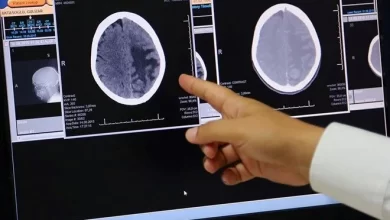Types and Properties of Hospitals in Turkey

The hospitals which form the foundations of health system may be defined simply as “the place where patient is looked after following hospitalization and surgical interventions are made”. Hospitals are the institutions that incorporate health personnel, experts, surgeons, necessary health equipment and materials.
Apart from being living spaces of patient and wounded, hospitals constitute many different functions in Turkey.
Place and Importance of Hospitals in Modern Health System
Hospitals in Turkey has not only purpose of post- operative improvement and treatment services but also purpose of prevention of emergence of diseases, epidemics, on-site treatment or referral to hospital of those who have no opportunity to arrive hospital by providing external patient services, research, development and training health experts, etc.
Hospitals are classified according to many different service options. Types and properties of hospitals in Turkey are as follows;
Hospitals as per Service Types
Since each hospital could not offer solutions appropriate for each patient, hospitals are sorted as per service types. Hospitals are divided into 3 according to service types:
General Hospitals
The hospitals which makes intervention to all emergencies, do not make religion, language, race and citizen distinction between its patients, keep specialists within their bodies and when necessary, be able to make surgical intervention enter in the category of general hospitals.
Special Branch Hospitals
The hospitals which are interested in certain diseases, some age groups or put emphasis on body and tissue transplantation are referred to special branch hospitals. Hospitals of heart and chest diseases, kidney hospitals and bone hospitals may be given example for special branch hospitals.
Training Hospitals
In addition to performance of the duties like training expert, conducting education and research activities, etc. the hospitals which have bed capacity for inpatients, may intervene to emergencies and make surgical operations are called training hospitals. Hospitals of department of medicine and research hospitals of universities may be exemplified for this type.
Hospitals by Duration of Stay of Patients
Ambulatory Medical Centres: health centres at which patients may pass their treatment duration daily, admit patient under critical situations or in the course of observation period.
Hospitals with Short Duration of Stay: The general or special branch hospitals which admit patient for treatment periods less than 30 days enter in this category.
Hospitals with Long Duration of Stay: hospitals with long duration of stay are preferred for treatment periods more than 30 days.
Hospitals classified by their ownership
In the classification made according to ownership of hospitals, financial resources of hospitals are predicated on and classification is made over these financial resources. With this classification, private enterprise hospitals and the hospitals belonging to public organizations and institutions are separated from each other. Classification of hospitals as per their ownership is made as follows;
- Hospitals belonging to ministry of Health and Ministry of Social Assistance
- Hospitals affiliated to Social Insurance Institution
- Hospitals belonging to Public Economic Enterprises
- Hospitals of faculty of medicine affiliated to universities
- Hospitals belonging to special provincial administration
- Hospitals belonging to foreign nationals, minorities and associations
- Private enterprise hospitals
Hospitals Classified as per Number of Beds
In the classification made according to number of beds, not only number of beds but also personnel, expert staff, technical equipment and finance support are considered. Classification of hospitals as per number of beds is as follows;
- Private, public, branch or research hospitals with 50 beds
- Hospital complexes with 100 beds
- Hospitals with 200 beds
- Hospitals with 400 beds or more,
In hospital classification which has been applied in recent years, classification of accredited and unaccredited hospital is also made.
Hospitals which can make Surgical Intervention
Each hospital has no equipment to realize surgical operation at any moment. In such cases, referral transactions are made between hospitals and patient is referred to the hospital at which operation is to be performed. The hospitals which can provide trained expert teams, technical equipment, health services before and after operation may be shown by example to the hospitals making surgical intervention.






